The Tuttle Family
Excerpt from document in collection:
Bronson B. Tuttle early went into his father’s business of manufacturing small farming implements. When his father’s factory burned down in 1857, he turned his interests to the Malleable Iron Company, forming a partnership with John H. Whittemore. They produced malleable iron castings, and the company had interests in many important cities. Naugatuck was becoming quite an industrial center. Bronson Tuttle later became president of the Pratt Manufacturing Iron Company, makers of railway track supplies. Besides being connected with other concerns throughout New England, Mr. Tuttle served as director and trustee of the Naugatuck Savings Bank and the Naugatuck National Bank. His influence was widened further when he was elected senator from the fifth district.
On October 12, 1859, he married Miss Mary A. Wilcox. She had come from Litchfield in 1856 to teach in the City District school, located in the Prospect-Pond Hill section. She taught until the spring of 1858, “teaching the larger scholars.” Mr. and Mrs. Tuttle first lived in a house at Bridge and Main streets, it is said, and later made the Beecher house their home. It is believed that the house was moved back to Gunn Hill Road, (now Millville avenue); then, some years after the brick house was built, the famous old Inn was torn down.
Years before this, Church Street had developed out of a one-time cowpath bordered by fences, which led to pastures in what is now the Rubber Avenue section. The Tuttles set their stately brick mansion in the prosperous thoroughfare, Church Street, against a background of green hills, fencing the river. The town of Naugatuck had grown considerably by 1880, its railroad had made industry and commerce important, and many homes were being built on the hills above the center.
The Tuttle house was built at a cost of about $50,000; Mr. Robert W. Hill of Waterbury was the architect. It was built of pressed Philadelphia brick, a material typical of houses of that period. The tower was a main feature; round or square towers distinguished many houses designed by Mr. Hill. The wide porch running along the front and two sides of the house gave it an inviting, home-like appearance. The long windows were bordered by neat black shutters. It was beautifully landscaped, and was provided with its private water supply from a spring on the west hill nearly. The house also had its wide driveways and a porte-cochère extended from the north-side entrance, where, we can imagine, a shiny carriage drawn by well-groomed horses left many a fine lady and her gentleman at the porch in those early days.
Mr. Tuttle died at his summer home in Middlebury, September 12, 1903. Mrs. Tuttle lived until 1928. She traveled much during her life and brought back many curios she found a place in her lovely home. She enjoyed the fine arts and flowers.
When she died the house was left to her son, Howard B. Tuttle, and then to his family, who cared for it affectionately for a number of years.
On September 11, 1935, the property was given to the Town of Naugatuck (for the sum of one dollar) to be used for educational and recreational purposes. It was to be “under the jurisdiction of the Board of Education until such time as we have a park commission.”
This was a very generous gift.
So the Tuttle Place was destined to become school and ball-park, campus and parade-ground, art center and music-hall, and, in recent months, to represent the Government itself to the community of Naugatuck. The years have brought many changes, and we are the fortunate generation which gains by them.
…
Excerpt from document in collection:
TUTTLE FAMILY IN NAUGATUCK
This branch of the Tuttle family has lived in Connecticut for over three hundred years, coming to New Haven from Massachusetts in 1639, moving to Prospect around 1800.
Eben Clark Tuttle, born April 27, 1806 in Prospect, moved to Union Village, (now Union City, a part of Naugatuck) in 1846, bringing with him his wife, Temperance Beecher and his young son, Bronson Beecher Tuttle. A second son, Adelbert Clark Tuttle, was born there the following year. About 1829 Eben Tuttle began to manufacture a solid cast steel hoes of the “goose neck” pattern of which he was the originator. Eben Tuttle moved his plant to Union City in order to make use of water power to run additional machinery. He purchased the old Shear Shop on Fulling Mill Brook. From time to time he added to his business the manufacture of other agricultural implements. He built the dam in 1850 and added a shop and several other agricultural implements. He built the dam in 1850 and added a forty-foot overshot water wheel in 1851.
In 1856 a co-partnership under the name of E. C. Tuttle and Company was formed between E. C. Tuttle, Bronson Tuttle, Enos Hopkins & E. L. Hinman, capitalized at $30,000.00. The site was that formerly used by the Union City Wheel Company. The company was organized to manufacture agricultural implements and malleable iron. In 1858 the entire plant was burned. E. C. Tuttle turned over the malleable iron part of his business to his son, Bronson B. Tuttle, and John Howard Whittemore. The two young men, about 21 years of age, formed a co-partnership on Oct. 4th, 1858 to carry on this business. E. C. Tuttle went to Canada in 1860 where he started a plant in St. Catherines. Later his younger son, Adelbert Clark Tuttle, was connected with this Canadian business before returning to Naugatuck to become associated with the Naugatuck Malleable Iron Company.
Bronson Beecher Tuttle was born Dec. 28th, 1835 in Prospect. He married Mary Ann Wilcox, who was born in Madison, Conn. The business, the partnership of Tuttle & Whittemore, prospered. It was later incorporated in 1871, and in 1888 became the Naugatuck Malleable Iron Company and eventually, in 1894, the Eastern Malleable Iron Company. Bronson B. Tuttle was a director from organization, 1883 of the Naugatuck National Bank, and one of the original incorporators, 1870, and one of the Trustees of the Naugatuck Savings Bank. He was interested in many industries outside of Naugatuck, and was active in the formation of the National Malleable & Steel Castings Company of Cleveland, Ohio. He was also an organizer of the Link-Belt Mfg. Company of Chicago. In 1885-1886 he served as State Senator for the Fifth District in Connecticut, having been elected on the Republican ticket. He died Sept. 12th, 1903. His wife, Mary A. Tuttle, survived him for many years, dying Sept. 8, 1928, in her 93rd year. The B. B. Tuttle home on Church St. was, a number of years later, given by the family to the Town of Naugatuck for the use of the Public Schools.
Howard B. Tuttle, the only child of Bronson Beecher Tuttle and Mary Ann (Wilcox) Tuttle, was born in Naugatuck, October 25th, 1863. He married Jeannette Phelps Seymour of Naugatuck. He died Sept. 29th, 1933.
Some Distinguished Naugatuck Women
by D. J. Blackwell
Today, and for some years now, “women’s rights” have been getting considerable attention. Because they have won many rights the call for such now is less strident than in the past. Many groups of both sexes have talked much about rights, sometimes forgetting that there are no rights without duties or obligations. This seems to be better understood now than in the past. It used to be said, “A woman’s place is in the home”, but today, many women are effective in the professions, business and other fields. Gradually women have taken a more active role in community and civic affairs. This was true in Naugatuck and it might be worthwhile to consider some of these people and their contributions to life in town.
Mary Wilcox Tuttle, wife of Bronson B. Tuttle had been a school teacher and had many interests. Living in a large home with servants, she could pursue her interests in ways that many women with large families and no domestic help could not. Ms. Tuttle took a great interest in Naugatuck affairs and had enjoyed cultivating flowers, particularly orchids. Having greenhouses and a couple of gardeners at her disposal, she could specialize and devote the necessary time to build up the finest orchid collection in the state including many rare varieties from all orchid growing areas of the world. She exhibited at flower shows at the New York Horticultural Society and sometimes took a first prize. Her gardener, Michael Pope, became an expert on orchid culture.
After the death of J. H. Whittemore in 1910, people in Naugatuck sought a suitable memorial to be erected to him because he had done so much for the town. Mrs. Tuttle thought a new Maple Street Bridge well designed would be an effective memorial and something all citizens could participate in. It was hoped everyone including young and old would contribute. The records still exist listing many school children that contributed.
…
Mrs. Tuttle deserves credit for suggesting a most useful structure that has joined the east and west sides of town since 1914 and withstood complete destruction by natural forces that destroyed many bridges and buildings in this valley.
Reference - Naugatuck Historical Society News, September/October 1998
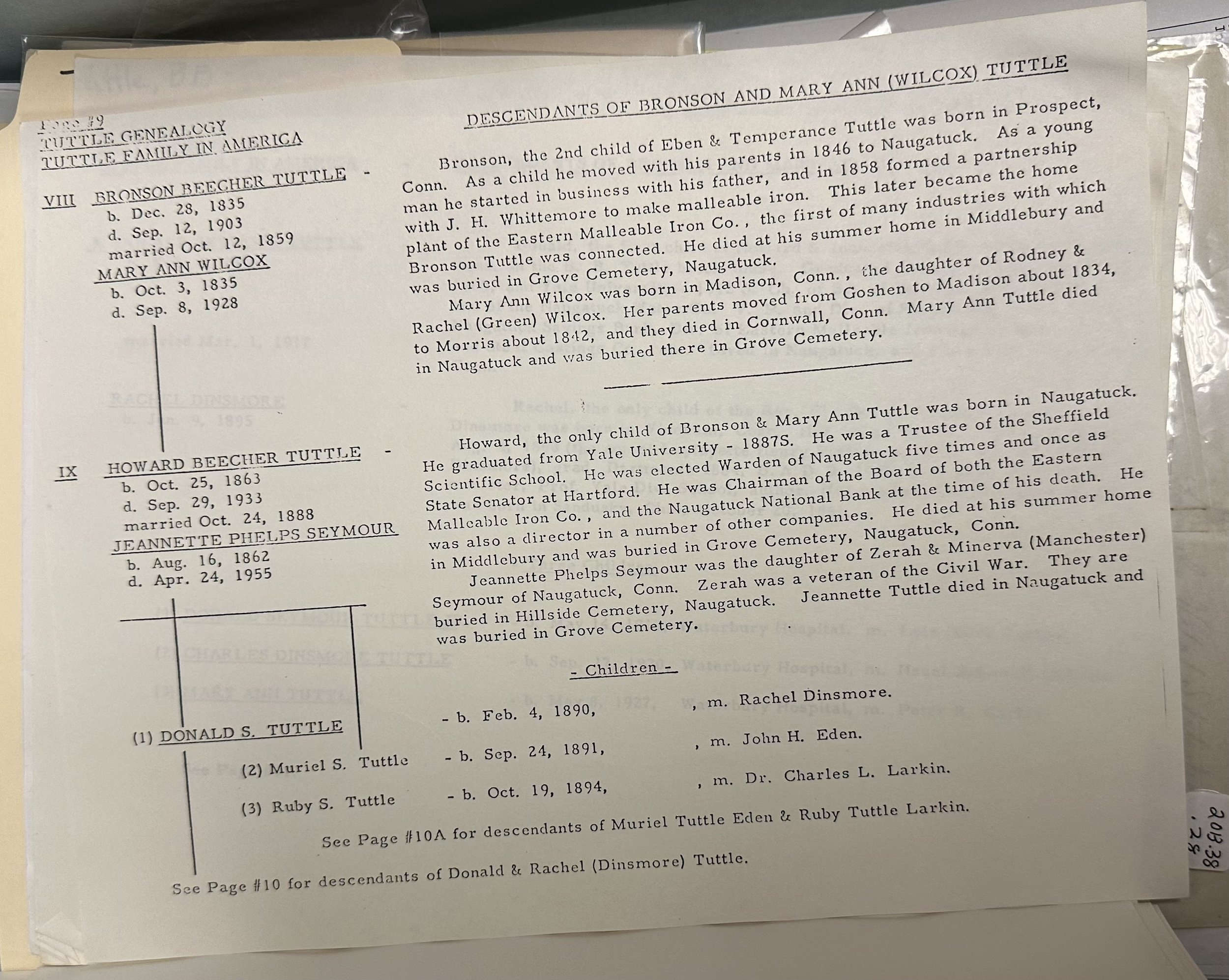
Tuttle Family Genealogy
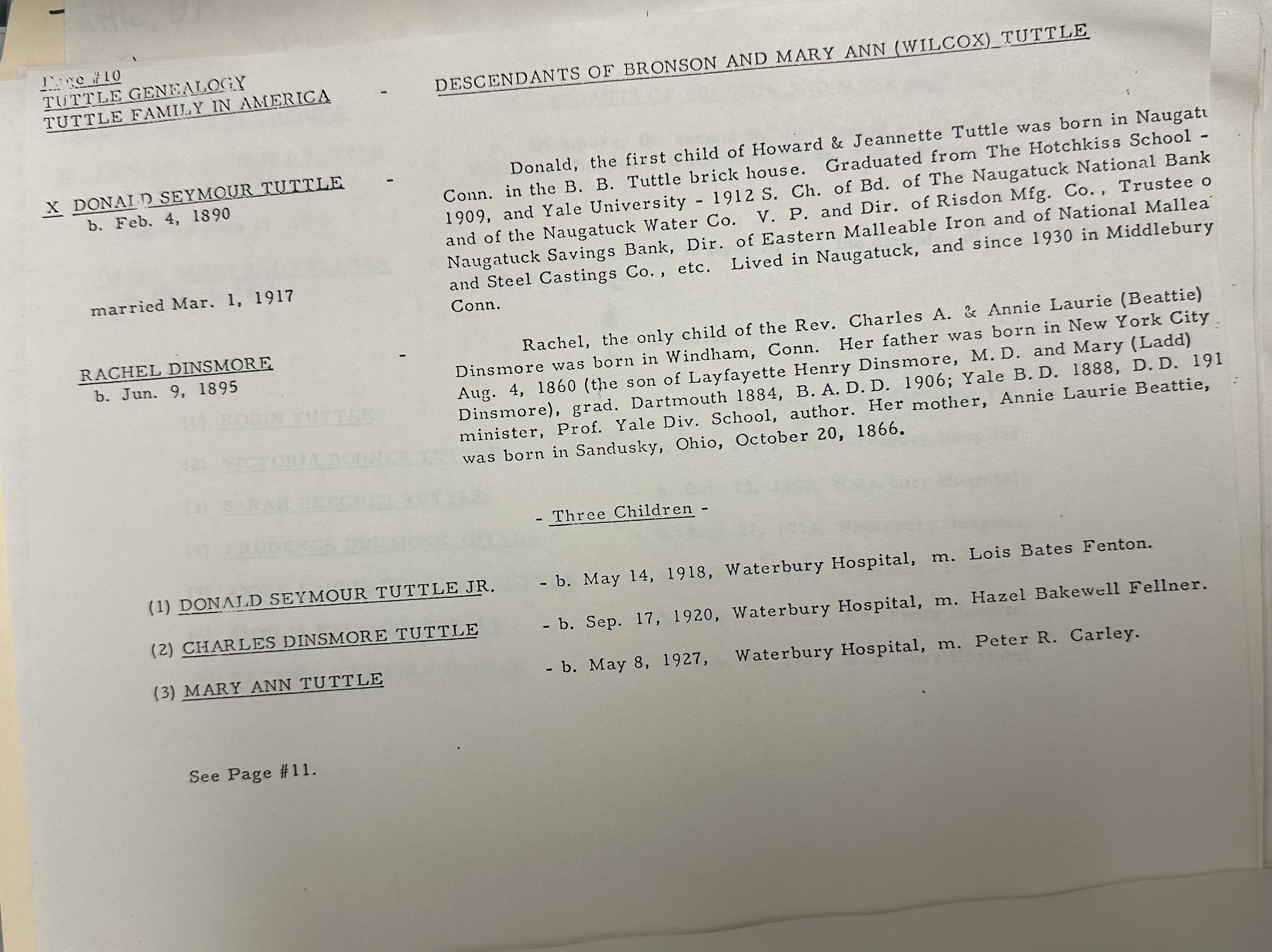
Tuttle Family Genealogy
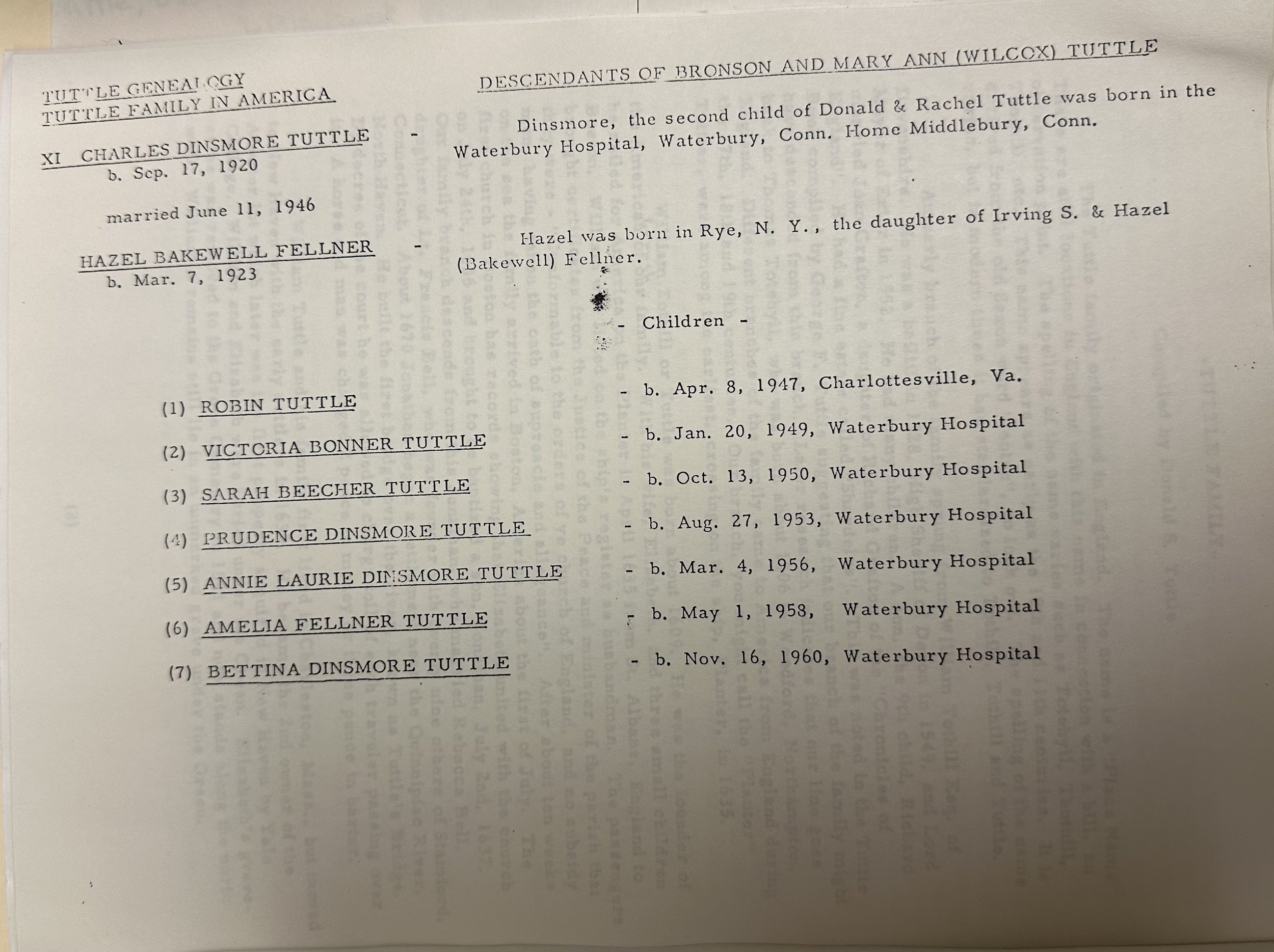
Tuttle Family Genealogy

Mary Wilcox Tuttle, wife of Bronson B. Tuttle
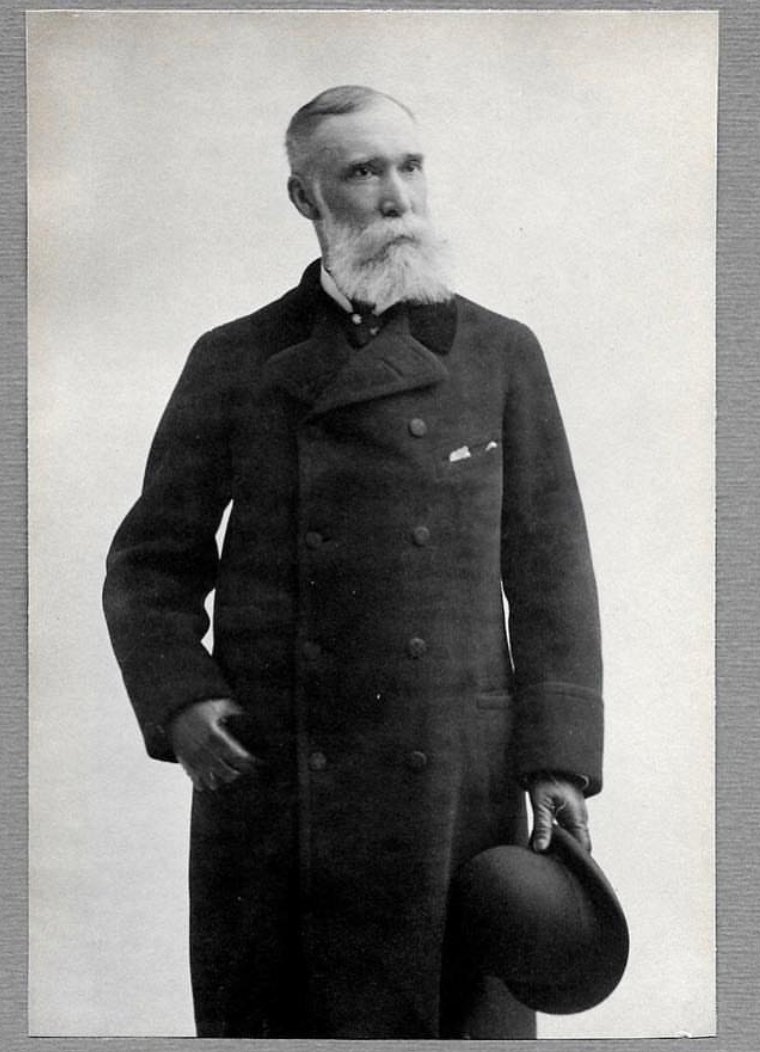
Bronson B. Tuttle

Bronson B. Tuttle
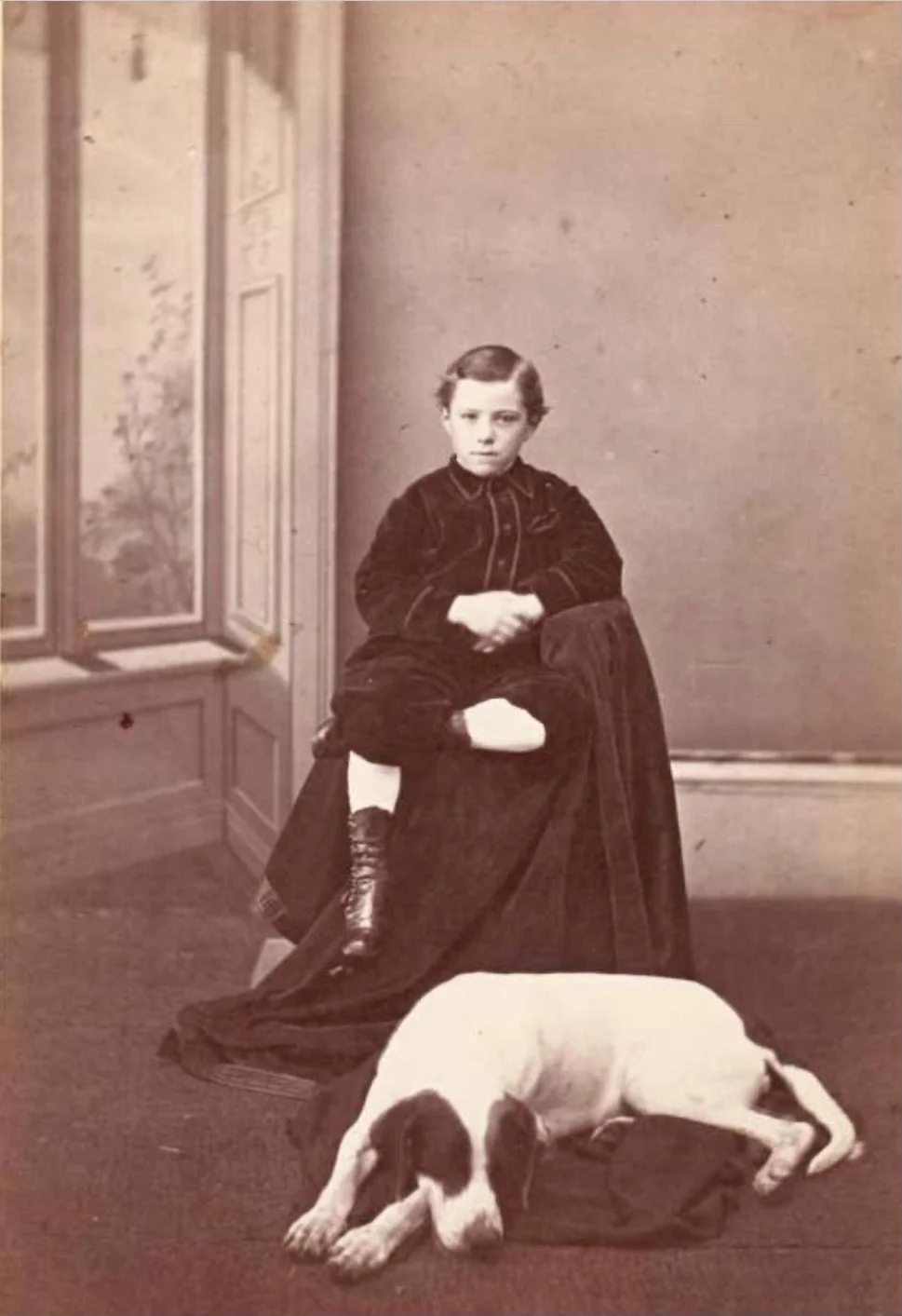
Howard B. Tuttle
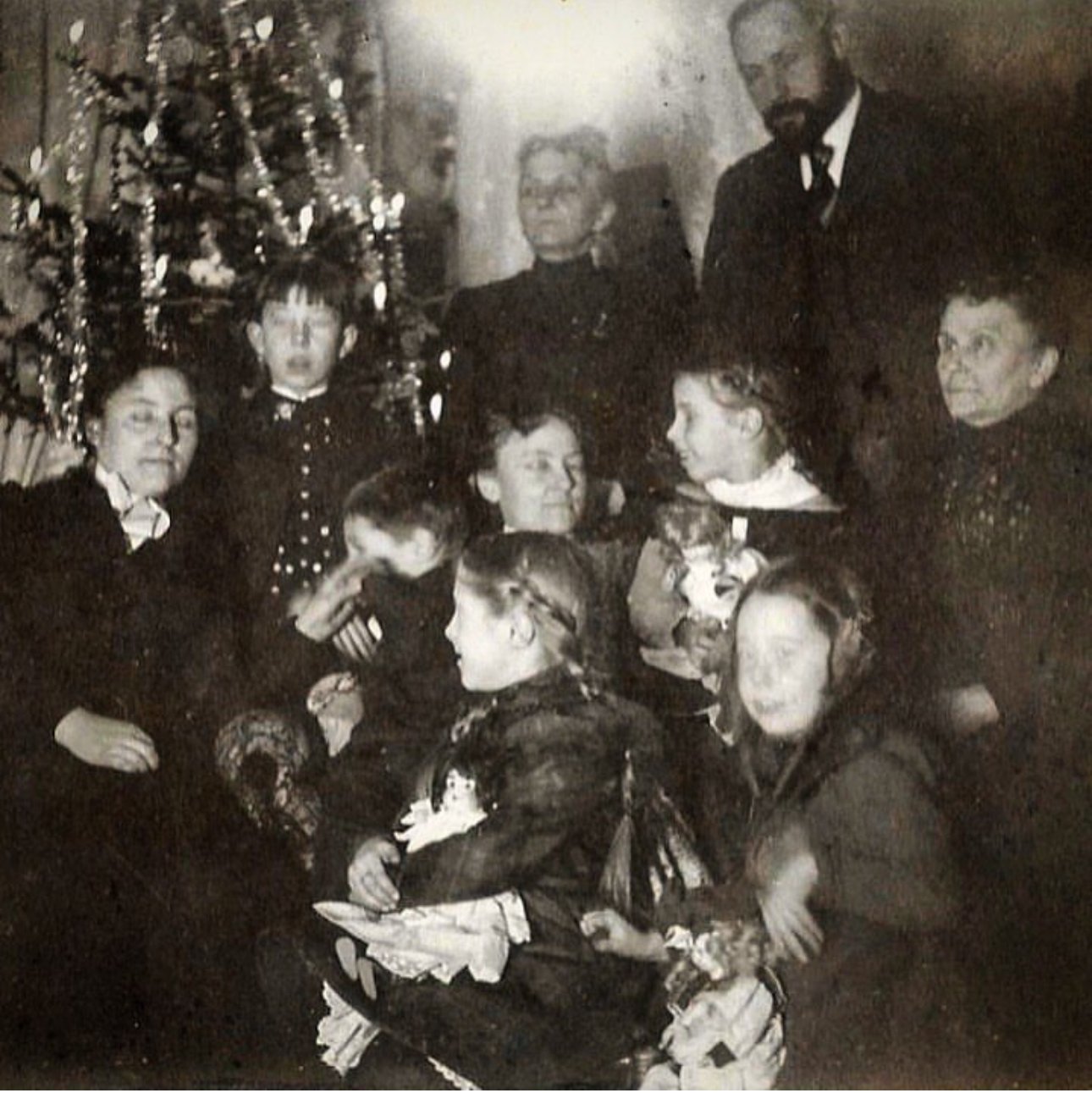
1900 Tuttle Family Christmas Picture
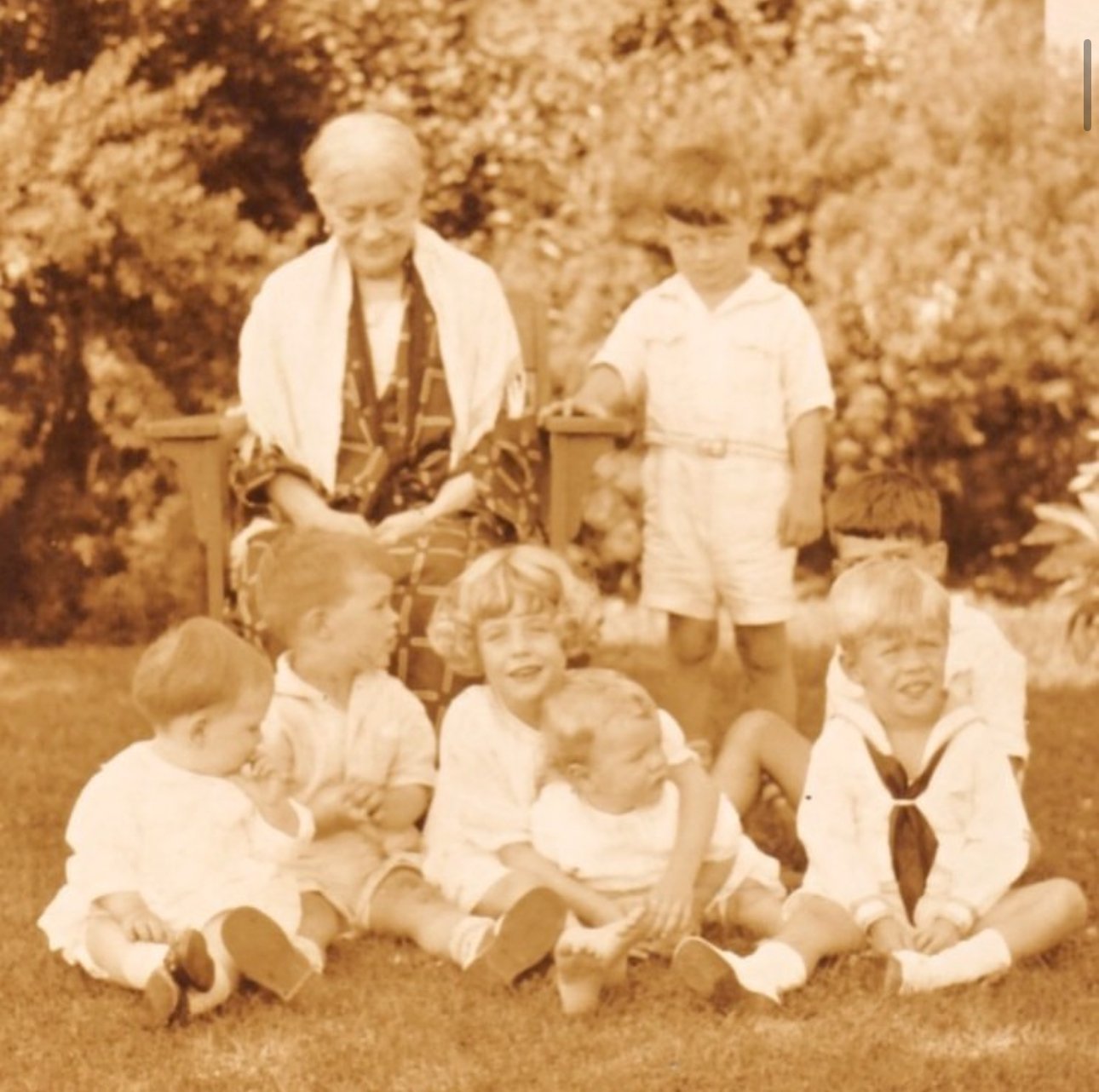
Jeanette Tuttle c.1925 (daughter-in-law of Bronson & Mary Ann Tuttle) pictured with her grandchildren: Charles Tuttle, Howard Larkin, Charles Larkin Jr. , Jeanette Eden, Bronson Eden, John Eden, & Donald Tuttle Jr.
Howard & Jeannette Tuttle House
41 Millville Ave.
Designed in 1903 for Howard Beecher Tuttle and Jeannette Seymour Tuttle and their three children: Donald, Ruby and Muriel. H.B. Tuttle, who served as warden (mayor) of Naugatuck for five terms, was an executive of the Eastern Malleable Iron Co., founded in 1858 by his father Bronson B. Tuttle and J.H. Whittemore.
A. Milton Napier, designer of the house, was a master of the Colonial Revival style. Napier worked in the prestigious architectural firm of McKim, Mead and White from 1887 to 1896 and later operated the Tide-Water Building Company, which oversaw construction of numerous buildings for the Tuttles and Whittemores in Naugatuck and Middlebury, including the Westover School.
Howard passed away in 1933 but his wife, Jeanette, lived in the house until her death in 1955. The house then became Jones Nursing Home in November of 1956 until 1983. The house then sat vacant for a few years until the conversion to condos began in January 1989. The conversion was well planned so that most of its historic features have been preserved and each unit is unique. They still retain good examples of crown molding, high ceilings, and original fireplaces. During the years, additional units were added as an annex to the original mansion, and in the early 1990s, the carriage house at the top of the property burned down and a new, three-unit building was added.
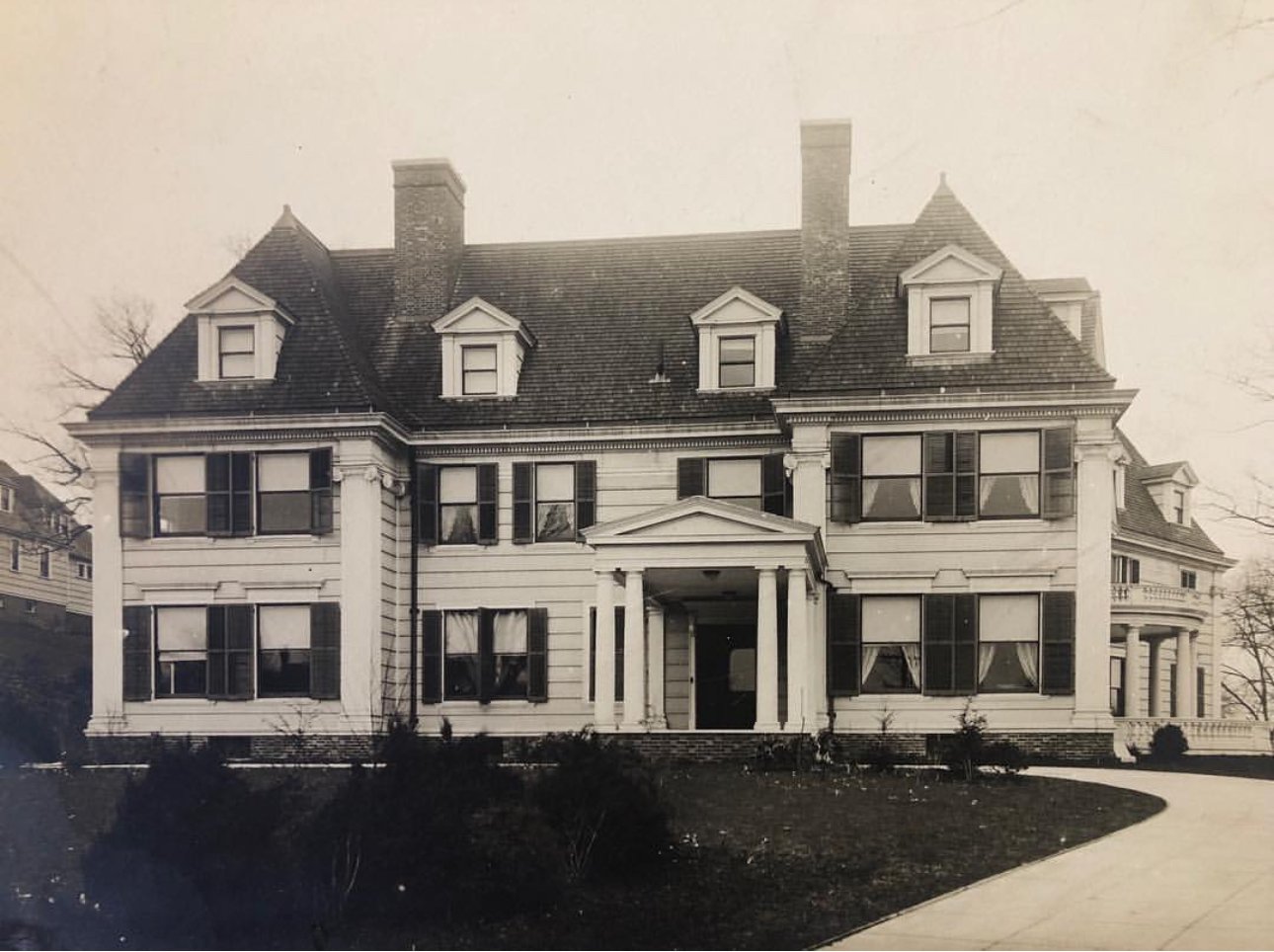
1903
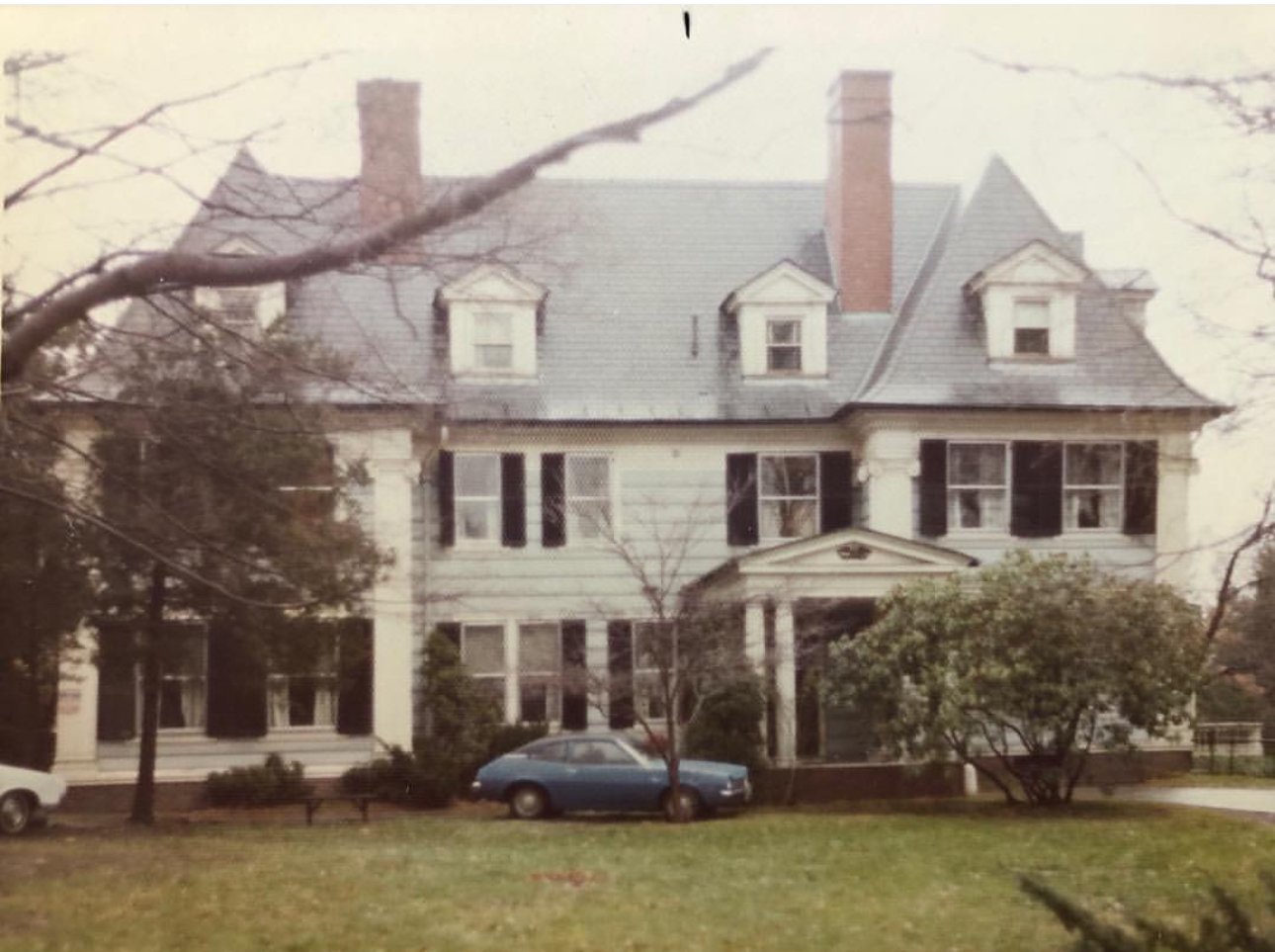
1972
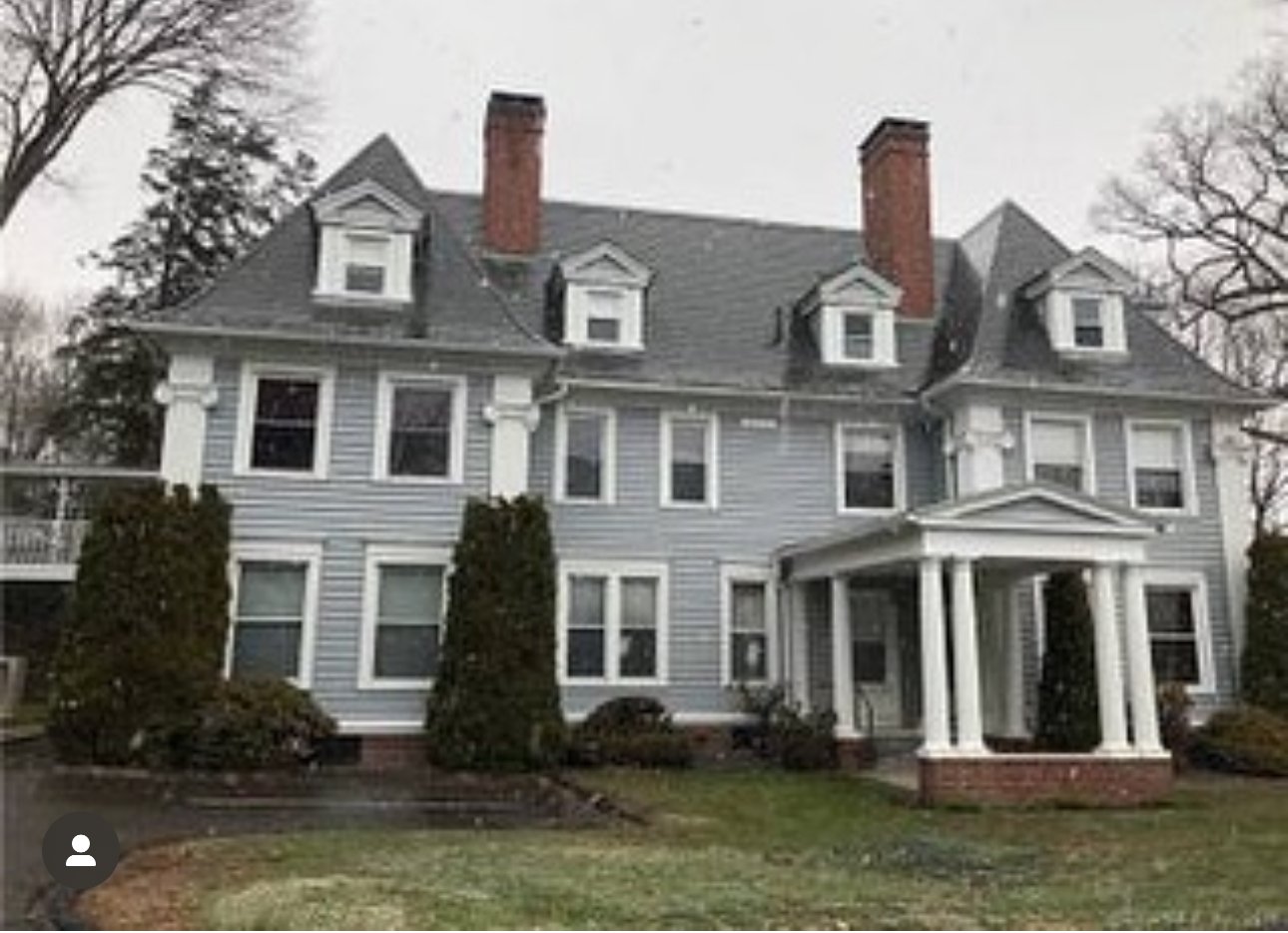
February 2019
